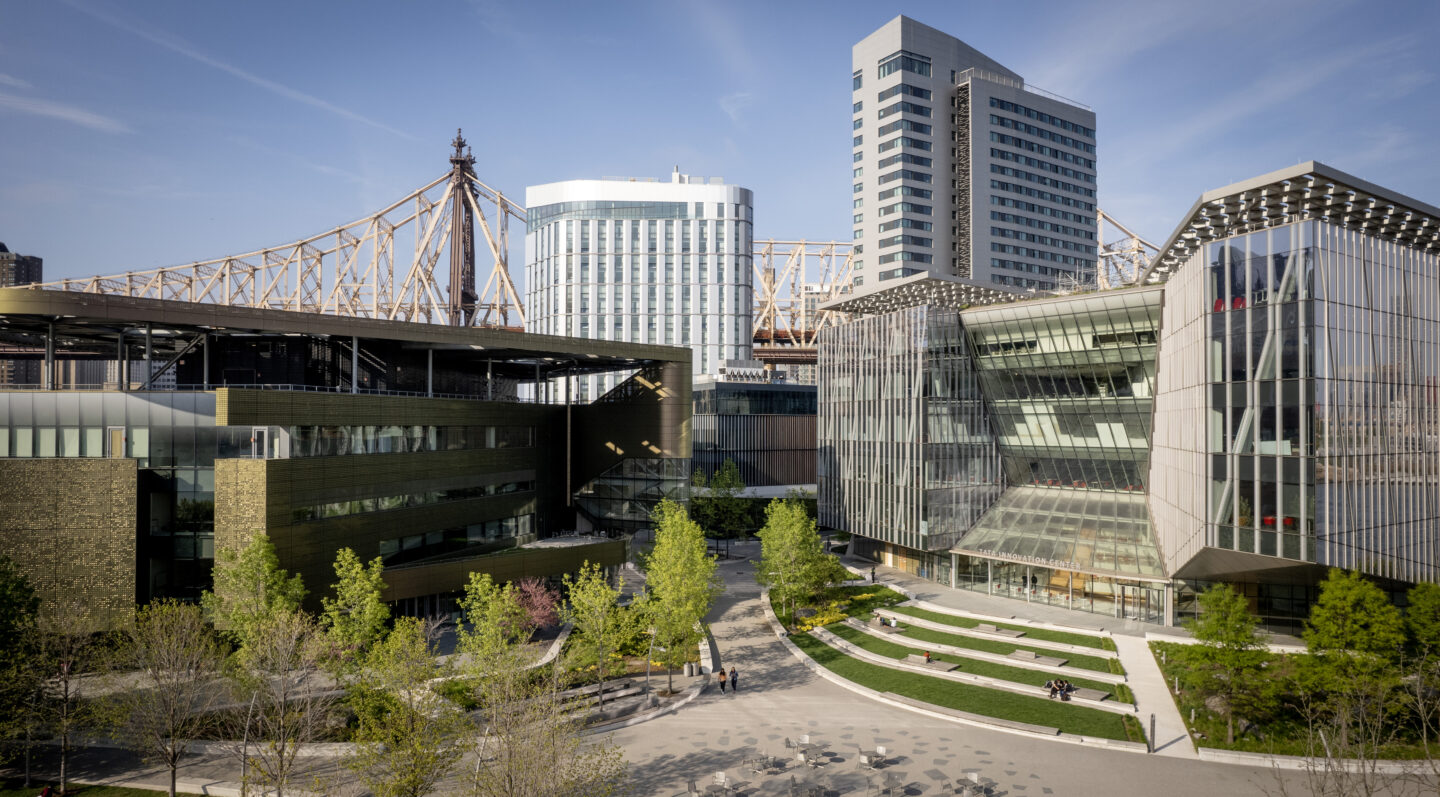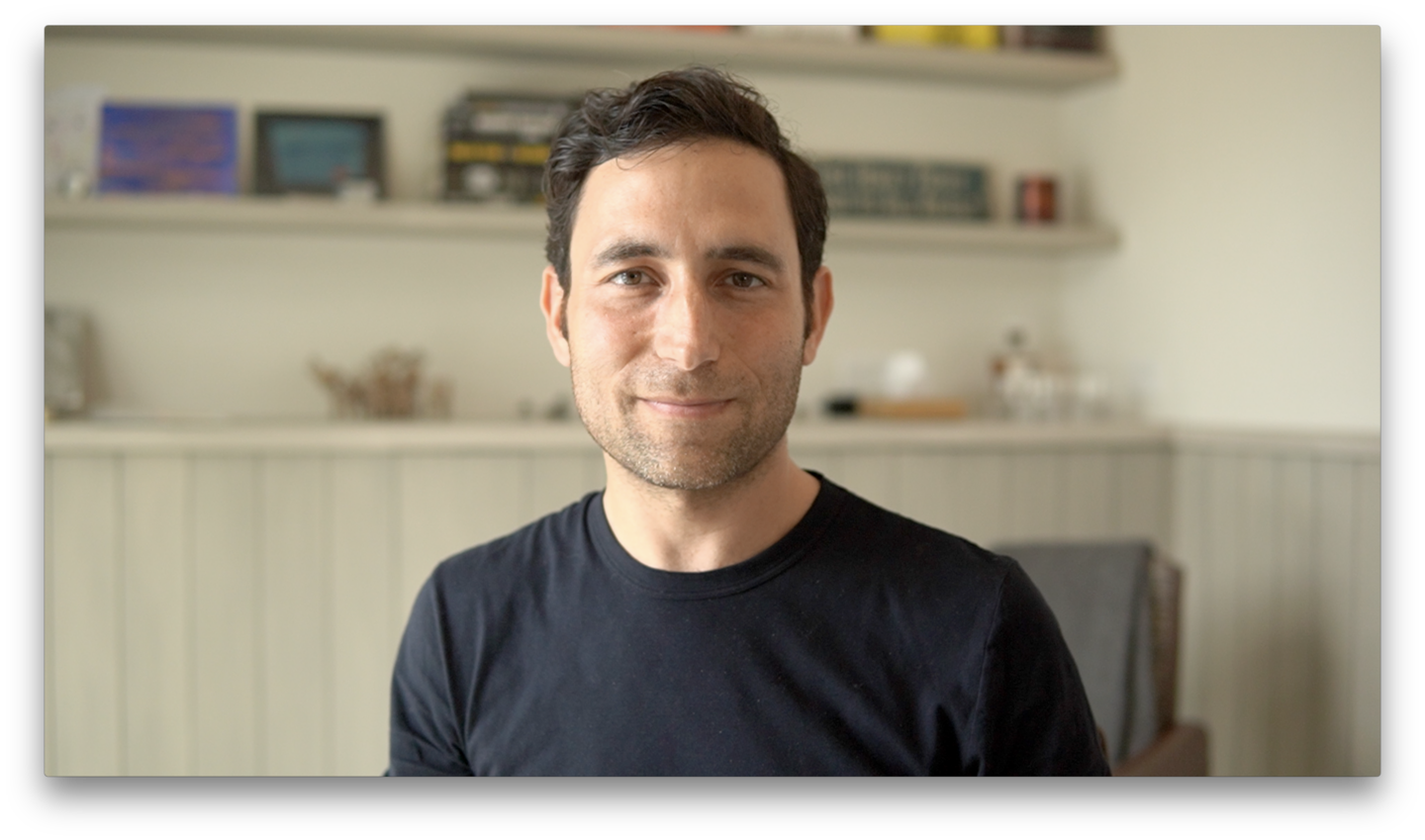
The article originally appeared in the Cornell Chronicle.
In August 2017, Cornell Tech’s inaugural Roosevelt Island class will move into a campus built for innovation and creative collisions.
Students will spread out their team projects in the Bloomberg Center with its flexible, open floorplan. They will collaborate on research nearby at The Bridge, alongside resident companies. And they might live in The House, the first high-rise in the world built to incorporate energy-efficient passive house principles.
The three buildings comprise phase one of the Roosevelt Island campus, or about one-third of the entire project, which will accommodate more than 700 full-time graduate students as it grows over the next decade. When the entire campus is completed in 2043, it will house more than 2,000 students and several hundred faculty members.
Cornell Tech is accepting applications for this inaugural class in seven master’s programs in computer science; electrical and computer engineering; operations research and information engineering; Technion-Cornell dual master’s degrees in connective media and health tech; the Johnson Cornell Tech MBA; and a Master of Laws in law, technology and entrepreneurship, announced last year with Cornell Law School.
“Our faculty’s careers up to this point appear to have been crafted for their roles here – each of them comes from a mix of backgrounds that combines academic excellence and real-world impact,” said Dean Dan Huttenlocher of the 29 current faculty members who teach and advise 200 master’s and doctoral students.
Cornell Tech’s focus on industry application and entrepreneurship across its programs has proven successful, Huttenlocher said. Nearly 200 Cornell Tech alumni have graduated since the first class launched in January 2013, and they have founded 29 startups that have attracted more than $12 million in funding. Graduates are working for Adobe, Amazon, Bloomberg, eBay, Facebook and Google, and a wide range of New York-based companies.
Key to Cornell Tech’s approach to education is its “studio culture.”
“The core of our programs – what we think is the ‘special sauce’ – is our Cornell Tech Studio,” said Greg Pass, chief entrepreneurial officer. “Studio is usually thought of in the context of art and architecture schools, where students are learning and practicing creative and performative arts. We view digital product development and entrepreneurship in a similar light.”
When students in all programs meet for studio on Tuesday afternoons, practitioners from the New York City tech community work side by side with them, giving feedback and preparing them to enter the tech industry and hit the ground running. In their first semester, all students take Product Studio, where they respond to challenges from companies and organizations. In their final semester, they all take Startup Studio to develop products that could become new companies. With teams that include engineers, product managers, business people and lawyers, students embark on a startup founding experience that includes identifying nascent markets, inventing new product ideas, and using technical and business expertise to rapidly develop new products.
About Cornell Tech’s master’s degree programs
Johnson Cornell Tech MBA: This one-year program provides the same foundational curriculum as Johnson’s other MBA programs in Ithaca, with an additional focus on technology that gives students the leadership and teamwork skills to manage dynamic tech companies and product teams.
Master in Computer Science: Technology-driven startups need computer scientists who also understand the business side of bringing innovative solutions to market. This year-long program gives students the technical skills needed to develop cutting-edge solutions while exposing them to entrepreneurship and product management.
Master in Electrical and Computer Engineering: Launching in fall 2017, this year-long program will teach state-of-the art methods in signal processing, data science and decision theory. Students interested in robotics and machine learning will learn to think like entrepreneurs and work on cross-disciplinary teams.
Master in Operations Research and Information Engineering: Businesses are awash in data, but they need skilled analysts and information scientists who can interpret that data for them to make business decisions that allow for operational efficiency. Students master the intricacies of data modeling, machine learning and predictive analytics in this one-year program.
Master of Laws in Law, Technology and Entrepreneurship: Businesses need a new breed of lawyers who understand the legal aspects of new technology as well as the challenges of bringing new companies to market. Open to practicing attorneys and recent law graduates, this one-year program provides students with specialized tech law skills.
Technion-Cornell Dual Master’s Degrees in Connective Media: This two-year program prepares students to work in the dynamic intersection of the human and the technical. Drawing on the disciplines of computer science, sociology, and business, the curriculum is shaping how human-centric software engineers, product developers, and user-experience specialists think.
Technion-Cornell Dual Master’s Degrees in Health Tech: Hospitals, insurance companies, government agencies – all are turning to technology for solutions to make healthcare more effective and affordable. The two-year program gives students the technical and entrepreneurial skills needed to create new digital technologies for patients, clinicians and communities.





